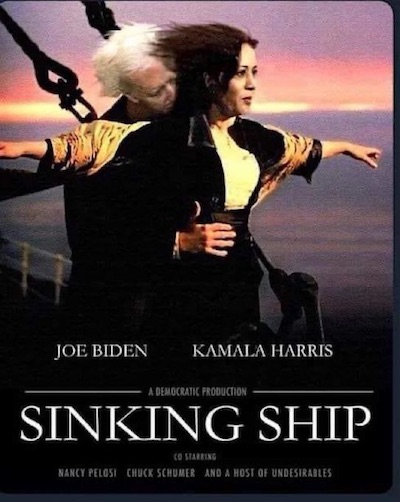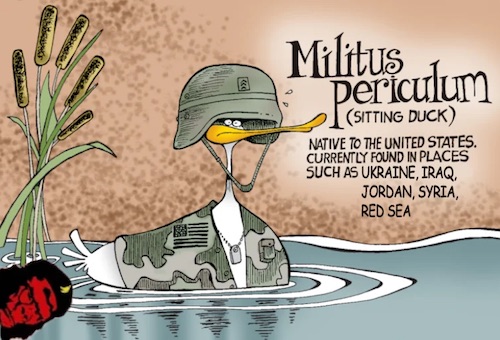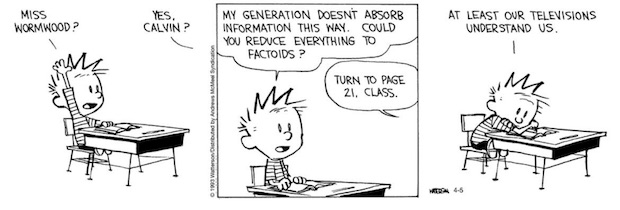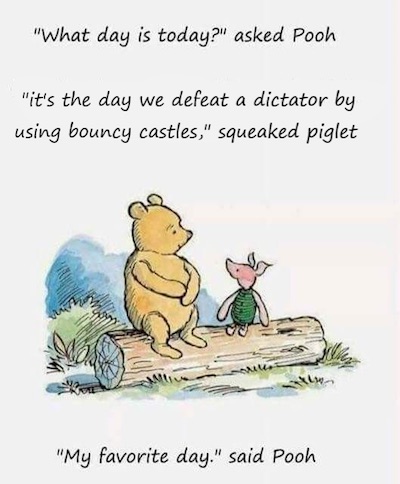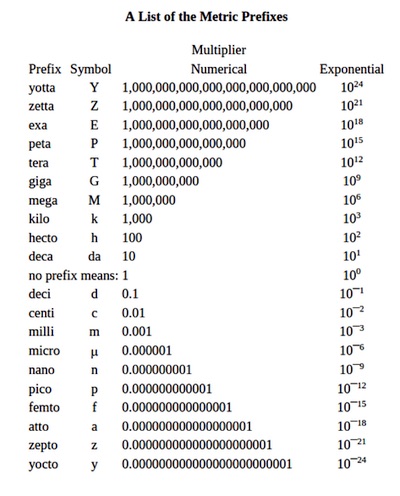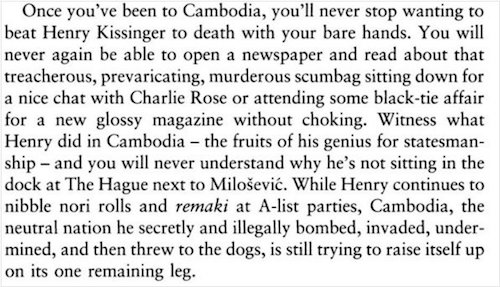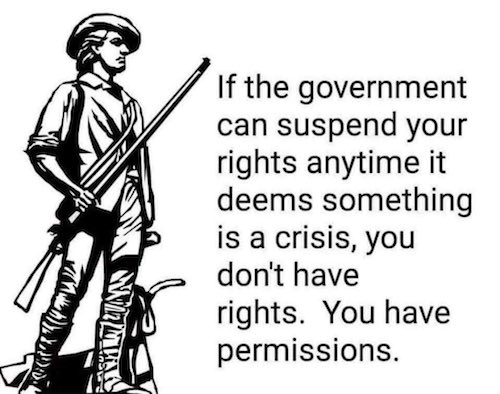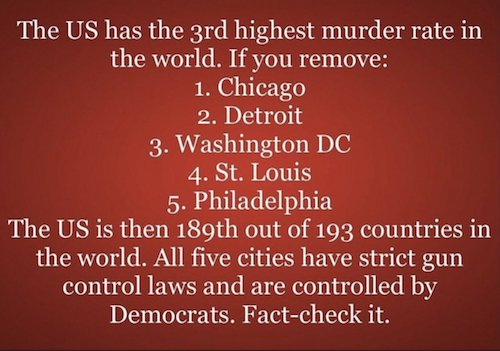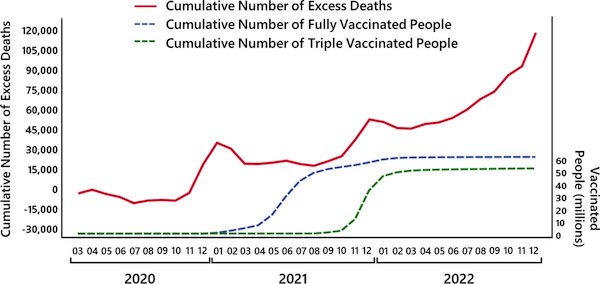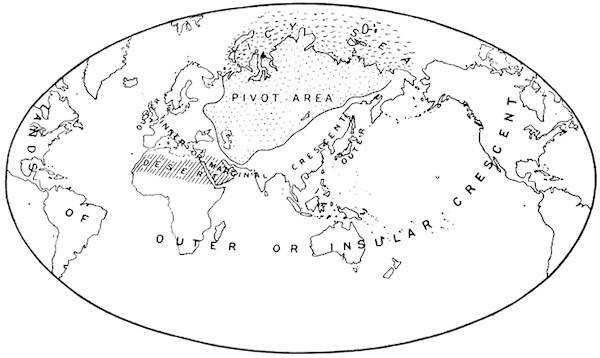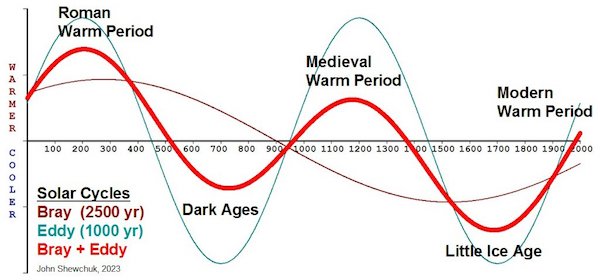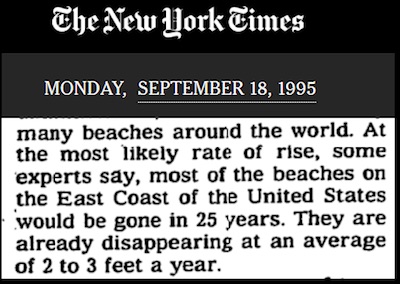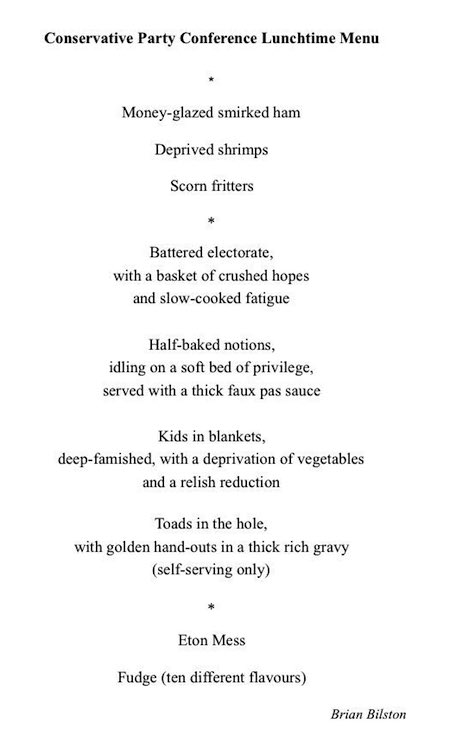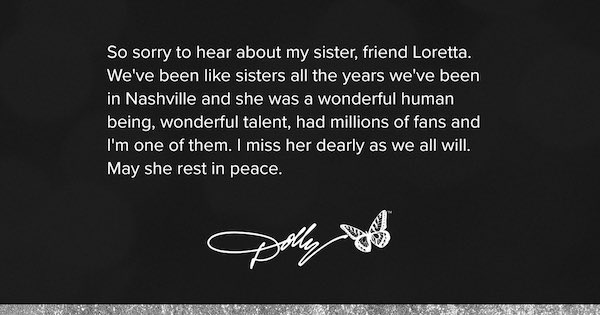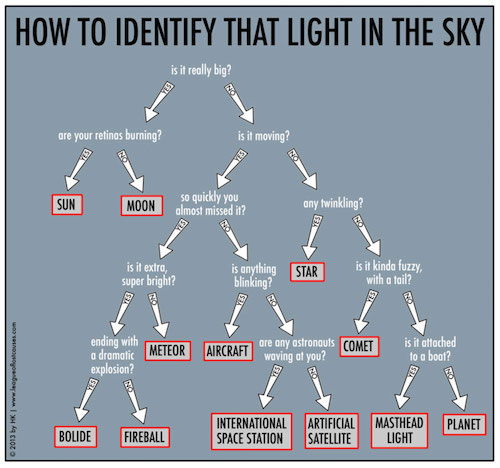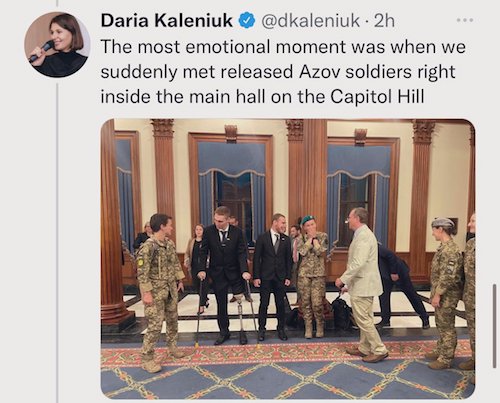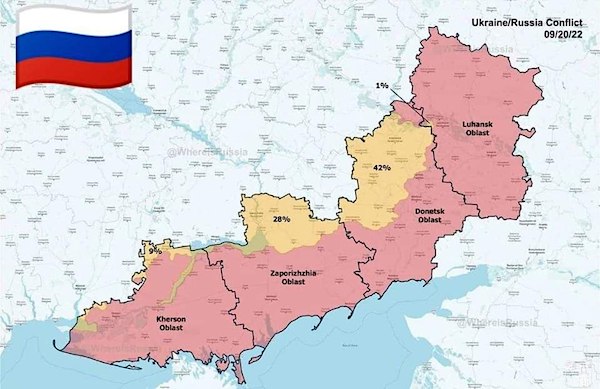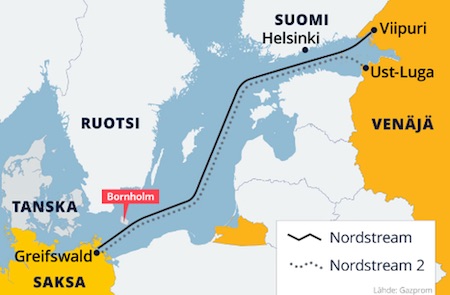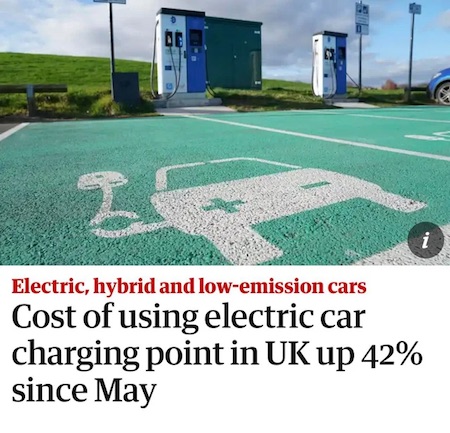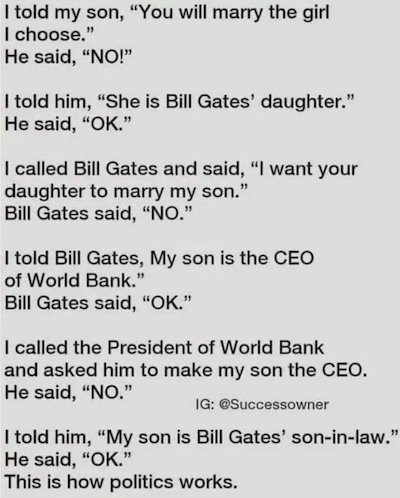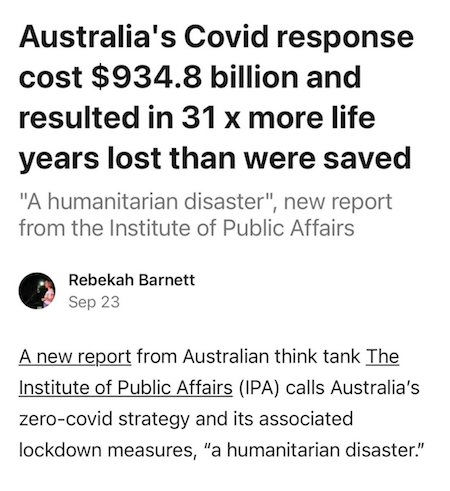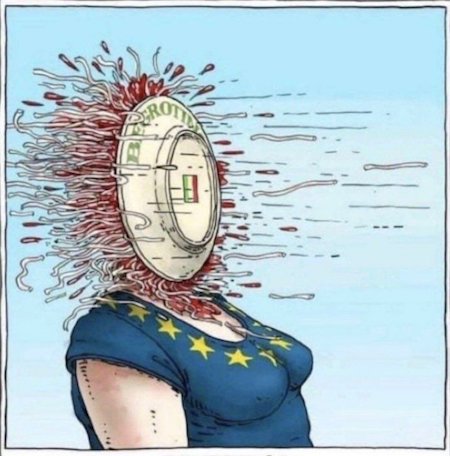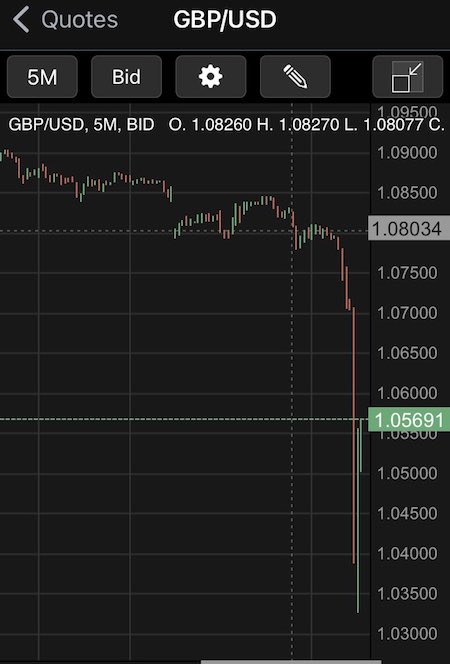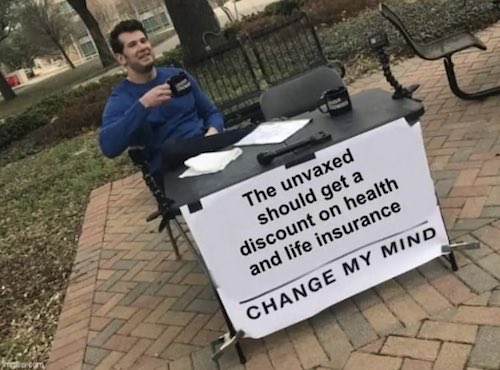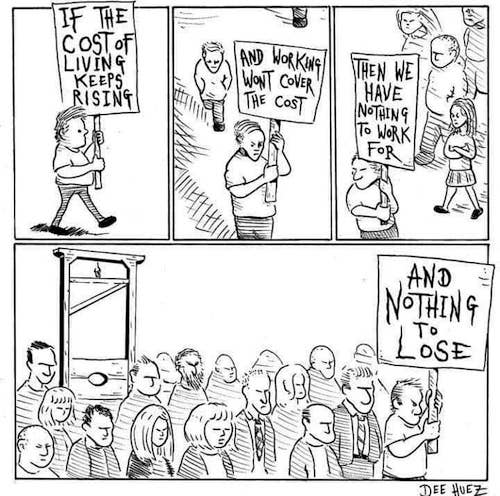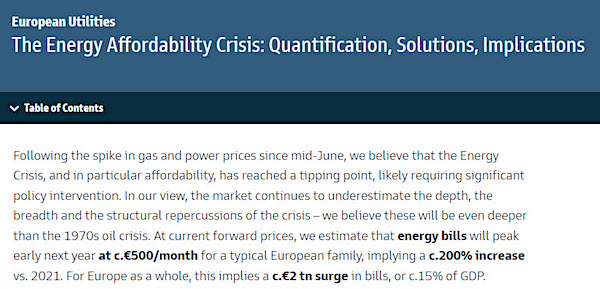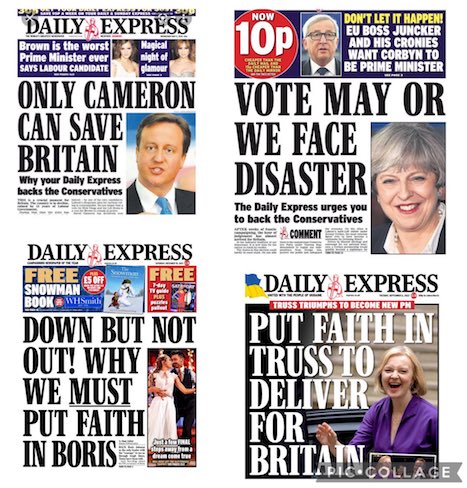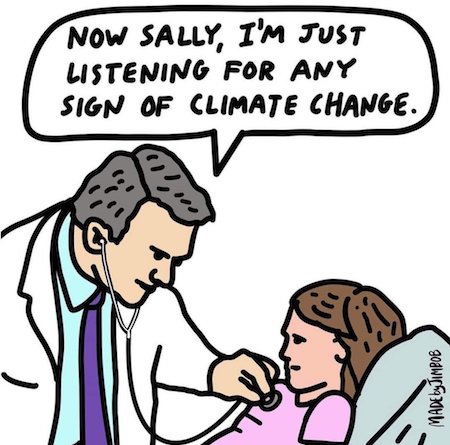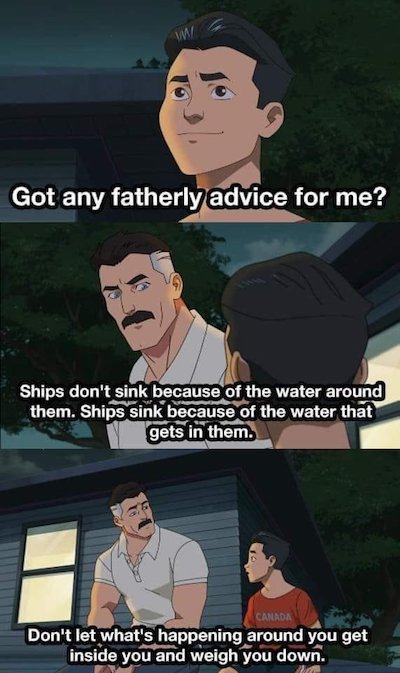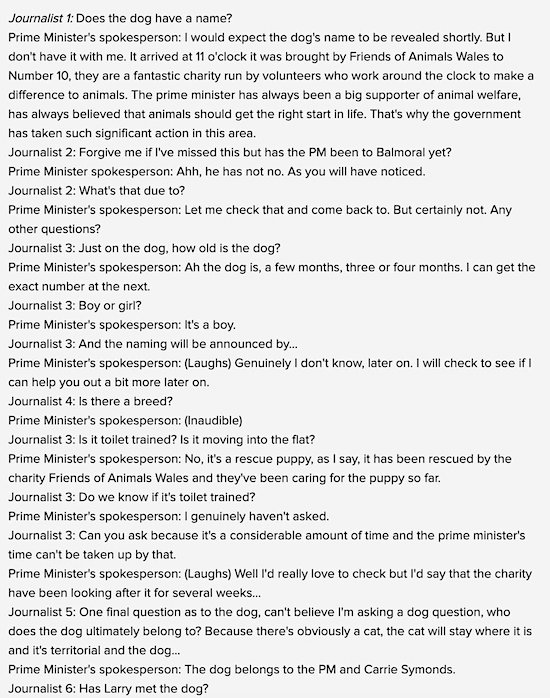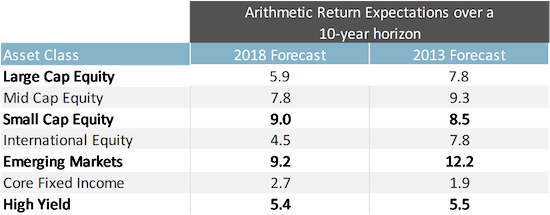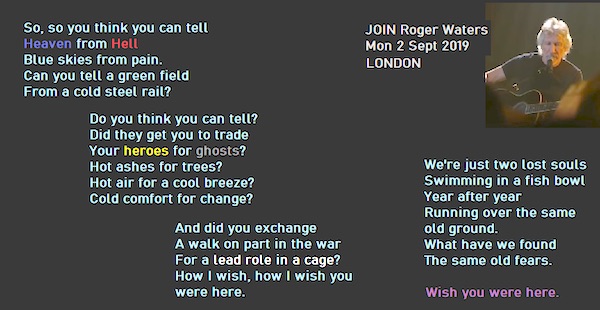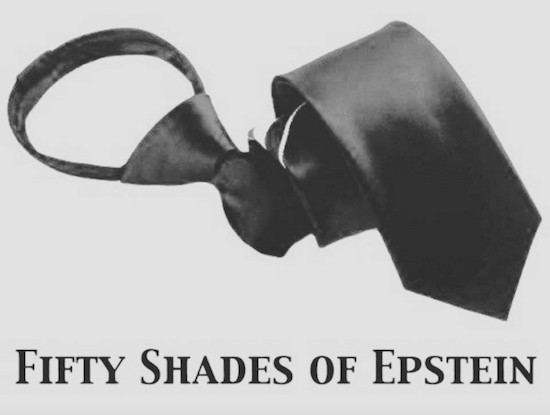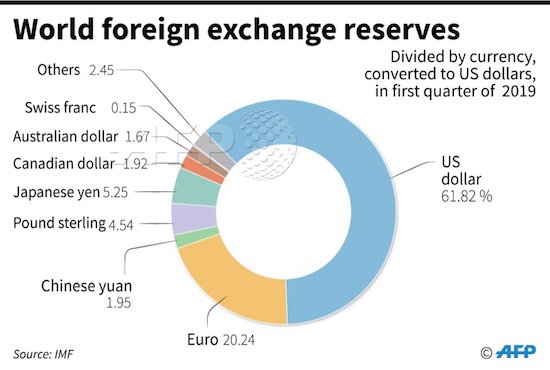
M. C. Escher� Relativity Lattice �1953



https://twitter.com/i/status/1834094117783278038

Trump 9/11
How The DNC Handled 9/11 vs Donald Trump
– Joe Biden spent 9/11 hiding in a bunker
– Kamala Harris spent it with her boyfriend Montel Willimas
– Donald Trump spent 9/11 marching into a war zone of fire & ashes with an army of his own men to save Americans#NeverForget pic.twitter.com/BUIAfX89cu
— Wall Street Apes (@WallStreetApes) September 11, 2024

Rep. Ind.
https://twitter.com/i/status/1834019780413583437

JD Vance
https://twitter.com/i/status/1834053741290643708

Judge Judy
Judge Judy shuts Chris Wallace down over Trump. pic.twitter.com/7G2pnKyWGh
— Mila Joy (@MilaLovesJoe) September 12, 2024

Sorority
THERE YOU HAVE IT: ABC News debate "moderator" Linsey Davis boasts on air about literally being Kamala Harris' sorority sister. WTF.pic.twitter.com/msQdryA4N1
— Kyle Becker (@kylenabecker) September 12, 2024

OMG
I was lying, I was trying to impress my date!
Because nothing turns a girl on more than your company Google coordinating with Kamala to win an election. pic.twitter.com/b8npksS5fC
— James O'Keefe (@JamesOKeefeIII) September 12, 2024

Collum
Dave Collum- IF THE PROCESS IS BROKEN THE SYSTEM IS BROKEN
Part 1 of 2 Dave talks the Presidential Debate, 2024 election, civil unrest, invaders, Springfield, OH, financial collapse and more.@DavidBCollum @RudyHavenstein @Matt_Bracken48
FULL SHOW: https://t.co/N2LLd9nPAW pic.twitter.com/s9crGH5l8r
— Michael Farris (@CoffeeandaMike) September 12, 2024

Sen. Biden
pic.twitter.com/UrM4XLptup
Here’s Biden Condemning his future self for his horrible Afghanistan Withdrawal.“If you leave those billions of Dollars in weapons behind I guarantee you they’ll be used against your grandchild & mine!” -Joe Biden
— Jimmy Dore (@jimmy_dore) September 12, 2024

Joe hat
I watched this longer clip & it only gets worse for Kamala
The man in the Trump hat didn’t take it off and tell Joe to wear it
Joe looked at him & said “I need that hat”, put it on, and smiled for the cameras
Direct hit on Kamala
No other explanation
pic.twitter.com/WpyWTdcnA3— DC_Draino (@DC_Draino) September 12, 2024


“In order to hold on to power, Democrats have decided to steal the election. This plan requires the orchestration of belief among the voting public that Kamala is a strong candidate leading Trump in the polls. Thus, the polls are rigged for this purpose..”
• How to Steal an Election: GOP Exposes Dems’ Playbook Ahead of 2024 Vote (Sp.)
Republicans are waving a red flag over possible “election theft” ahead of the November vote. They draw attention to efforts to cancel ID checks and ballot verification, the hiring of predominantly Democratic observers in some counties, and apparent attempts to create loopholes allowing illegal aliens to vote. “Election theft has always been present in America,” US economist and former Reagan administration official Dr. Paul Craig Roberts wrote. “In the 19th century, a vote could be bought for 50 cents and a half pint of whiskey. But in the 21st century, organized vote theft is a big business.” The economist pointed out that “normally, it does not matter to the ruling establishment which candidate wins, because the establishment owns both candidates.” However, in 2016, 2020, and 2024, Donald Trump emerged as a player “outside the grip and control of the establishment. Therefore, to keep him out of office, vote fraud has been elevated to the fore,” as per the economist.
Conservatives argue that the Democratic Party has launched full-fledged lawfare against the Republican frontrunner ahead of the election. The former president has been charged with a total of 88 felony counts in four criminal investigations, and found guilty of 34 of them. He is routinely vilified in the US mainstream press, and was most recently subjected to unfair “fact-checking” by ABC News during his September 10 debate with Kamala Harris, Republicans say. Meanwhile, a silent battle over the 2024 election is already underway across the United States. Instead of improving the democratic procedure’s transparency, voting requirements have been loosened in recent decades, the pundit said. “There are many ways to exploit the loose voting requirements in the US,” Dr. Roberts wrote. “[In some states] an ID or proof of citizenship is not required in order to vote. Actual physical presence is not required to vote: it can be done through drop boxes on streets or mail-in ballots.
“Dead people still on voter rolls can be voted. People still on voter rolls who have moved out of the state can be voted. Voter registrations made when driver’s licenses are issued to illegal aliens can be voted.” As of April 2024, 36 states required some form of identification to cast a ballot. Of these states, 21 asked for photo ID, and 15 also accepted non-photo ID. The remaining 14 states and Washington, DC did not require voters to present identification in order to vote at polls on Election Day. For years, Democratic lawmakers have tried to ram “voting rights” legislation through Congress to water down or abolish election restrictions altogether. Democrats argue that strict ID rules and in-person voting, advocated by Republicans, prevent low income people, African Americans, and other minorities from casting their ballots.
What’s worse, the assumption that black Americans are less likely to have proper identification instruments established a protocol leading to the issuance of Federal Identification Papers to illegal aliens. According to Dr. Roberts, “it is still illegal federally for illegal aliens to vote, but some Democrat cities permit them to vote.” “The 3.6 million immigrant-invaders who cross the border into the US from Mexico each year are provided with federal IDs. These IDs allow states to issue them driver’s licenses. Today, the practice is for the states to register the person to whom a license is issued on the voting rolls,” according to the economist.
[..] According to Dr. Roberts, Kamala Harris’ approval rating is deliberately inflated by polls and corporate press by oversampling Democratic voters, especially in swing states. Conservative commentators believe that this is done in order to lay the groundwork for potential election theft and make her victory there look more plausible. “In order to hold on to power, Democrats have decided to steal the election. This plan requires the orchestration of belief among the voting public that Kamala is a strong candidate leading Trump in the polls. Thus, the polls are rigged for this purpose,” Dr. Roberts wrote.
He drew attention to the fact that in 2020, when Kamala Harris campaigned for the Democratic nomination for president, she had zero support and was immediately eliminated from the first round. During her four years as vice president, she is rated as one of the worst and least popular in history. “In less than one month the presstitute media elevated her from a non-entity to the favorite in the US presidential election,” he noted.

“My fear is that [the United States] will try something really drastic like a false flag attack or maybe even a mini nuke,” said McGovern..”
• Will ‘Insane’ Biden Provoke World War III Before November Election? (Miles)
Lasting from the end of World War II until the early 1990s, the Cold War saw the United States and the USSR locked in a global competition for power and influence. Although the two superpowers never went to war directly, the 45-year period was marked by two proxy conflicts in Vietnam and Korea and a constant fear that a third World War was not far away. Tensions were heightened by the fact that both the United States and the Soviet Union possessed nuclear weapons, dramatically raising the stakes of global conflict. Both countries nearly saw their worst fears realized during the Cuban Missile Crisis, when it appeared the US and USSR were unwilling to back down over the issue of nuclear missiles being placed just miles from each country’s border in Cuba and Turkey. The incident led to the establishment of a special hotline for US and Soviet leaders to communicate directly, and caused US President John F. Kennedy to remark that tensions between nuclear powers must never again rise to such a level.
For decades, Kennedy’s maxim was dutifully observed as both countries worked to improve relations, finally culminating in the end of the Cold War. The prospect for nuclear confrontation was avoided until recent years, claimed former CIA analyst Ray McGovern, when the United States rejected Russian overtures for a new European security architecture and stubbornly insisted Ukraine’s coup regime would be granted entry into NATO. The analyst joined Sputnik’s The Critical Hour program Wednesday to consider whether US President Joe Biden is willing to risk global conflict to reverse Kiev’s flagging fortunes on the battlefield. “They want to provoke Putin [into] doing something really drastic before the election, before the [presidential] election here on November 5th,” suggested McGovern, a critic of neoconservative US foreign policy.
“They’re losing in Kursk [region],” he noted, referring to Ukraine’s stalled incursion into Russian territory. “What were they trying to do? They were trying to get the Russians to react in such a way as to bring the US in with both feet militarily.” [..] “My fear is that [the United States] will try something really drastic like a false flag attack or maybe even a mini nuke,” said McGovern, concerned that the US could fabricate an episode such as the Gulf of Tonkin incident that drew the country into the Vietnam War. “Let’s see what happens the next couple of weeks. I think Putin is right. It’s only the smart thing to see who wins on the 5th of November. Till then, I’m still holding my breath.” But McGovern warned that the consequences of the United States’ strategy in Ukraine could fall not on the US itself, but on its European allies.
“It’s really hard to know what Biden and [National Security Advisor Jake] Sullivan, who are running things, really think,” he claimed. “Some of my best friends and analysts think they’re insane. And it’s really, really hard to predict what they’re going to do if they’re insane.” “The Europeans are being told by the Russians, ‘look, if Biden, Blinken and Sullivan opt for a tactical nuclear weapon, for God’s sake, please, please remember we got them too. And where will we use them? We’ll use them in Europe,’” McGovern said, summarizing Russia’s possible response.

They refuse to get their voting in order.
• Another Season Of Shutdown Theater Is Upon Us (ZH)
Another season of shutdown malarkey is upon us – this time with a deadline of October 1st before it’s time to fling poo. Republicans want to tie a six-month funding stopgap (Continuing Resolution or CR) to the SAVE Act – which would require proof of citizenship when registering to vote. On Wednesday, House Speaker Mike Johnson (R-LA) yanked a funding bill off the House floor hours before an expected vote after a growing number of Republicans vowed to tank the measure which includes the SAVE Act. Democrats want a “clean” funding bill that would keep the government open until December, right after the elections, without (of course) the SAVE Act. Donald Trump wants Johnson and the Republicans to grow a pair of balls and let the government shut down if they can’t preserve the SAVE Act.
On Tuesday, before he yanked the funding bill off the floor, Johnson told reporters “We are going to put the SAVE Act and the CR together, and we’re going to move that through the process. And I am resolved to that; we’re not looking at any other alternative. … I think almost 90% of the American people believe in that principle and that’s why we’re going to stand and fight,” adding “You know how I operate: You do the right thing and you let the chips fall where they may.” Hilarious. After he pulled the bill, Johnson said: “We’re in the consensus-building business here in Congress with small majorities,” adding “We’re having thoughtful conversations, family conversations, within the Republican conference, and I believe we’ll get there.” Of course, going head-to-head with Democrats (and some Republicans) over the SAVE Act means litigating claims of election fraud, which Republicans folded like a wet napkin over after the 2020 US election instead of circling the wagons around Trump.
Meanwhile, at least seven Republicans have said they would vote against a CR, period, as it only kicks the can down the road. Johnson is dealing with a tough math problem. Because of their minuscule majority, House Republicans can only afford four GOP defections if all lawmakers vote. Rep. Joe Wilson, R-S.C., was hospitalized Tuesday night after collapsing at an event. And at least seven other Republicans have publicly stated they will vote against a stopgap measure, known as a continuing resolution or “CR.” Many others said they could join them. Two sources told NBC News that leadership was anticipating as many as 15 GOP no votes if the vote had been held Wednesday. -NBC” Republicans opposing a CR include Reps. Cory Mills of Florida, Jim Banks of Indiana, Matt Rosendale of Montana, Andy Biggs of Arizona and Tim Burchett of Tennessee. “I’ve continuously voted against CRs. I think it is terrible legislating,” said Burchett.
“And the No. 1 threat to this country is fiscal irresponsibility. We are going off a fiscal cliff, and I think that every time we do this, we just kick that can further down the road.” According to Mills, a military veteran and fiscal conservative who serves on the Armed Services and Foreign Affairs Committee, “This CR would weaken our defense capabilities and the readiness of our military, just as global threats are rapidly evolving. It would prevent us from responding effectively to adversarial nations like China, hinder innovation, and delay modernization,” adding “Six months is a long time in politics, but it’s an eternity in geopolitics, where quick responses are critical to countering foreign adversaries threatening to harm U.S. interests. Mills is a ‘yes’ on the SAVE Act, saying: “I’m a firm NO on bankrupting the nation and a YES on election integrity.” Rep. Thomas Massie (R-KY) explains the charade we’re about to see unfold over the next two weeks:
I refuse to be a thespian in the Speaker’s failure theater.
The 6 month continuing resolution with the SAVE Act attached is an insult to Americans’ intelligence.
The CR doesn’t cut spending, and the shiny object attached to it will be dropped like a hot potato before passage. pic.twitter.com/0FdHRYTm1q
— Thomas Massie (@RepThomasMassie) September 9, 2024

“She will cut red tape and build more housing by imposing new red tape in the form of federal rent regulations..”
• Kamaflage: The Harris Policy Dump (Porter)
The Harris-Walz campaign has been vibe-a-licious and content-free; its positions on domestic and foreign policy have (with apologies to Hollywood) essentially consisted of open defiance of any presidential campaign norms: “Policy? We ain’t got no policy. We don’t need no policy. We don’t have to show you any stinkin’ policy.” But the campaign’s policy on policy changed, sort of, the day before the debate, when it went ahead and posted some stinkin’ policy anyway. In a word, Harris’ policy dump should be seen for what it is: Kamaflage. She uses words that score well with Republicans and moderates, but inverts the meaning of those words, creating an unintelligible stinkin’ mess. “Kamala Harris will create an Opportunity Economy where everyone has a chance to compete and a chance to succeed – whether they live in a rural area, small town, or big city.” Really? How is she going to do that?
The campaign also promises that Harris would “make it a top priority to bring down costs and increase economic security for all Americans.” It added, “As President, she will fight to cut taxes for more than 100 million working and middle class Americans while lowering the costs of every day needs like health care, housing and groceries.” How would Harris cut taxes? Not by actually reducing anyone’s taxes, but by increasing spending: “restoring” (i.e. increasing) the amount paid out under two tax credits that provide cash payments to lower income families, most of whom already do not pay federal income taxes. But, as we learned from the ironically named Inflation Reduction Act, pumping more money into the system without increasing the supply of goods and services just devalues the dollar and creates inflation for everyone.
Harris’ campaign calls for both “making our tax system fairer and prioritizing investment and innovation,” while also calling for higher taxes on corporate earnings, quadrupling the tax on corporate distributions through stock buybacks, and increasing the capital gains rate by 40%. With a flourish that would make George Orwell blush, she blithely asserts that tax increases bolster the economy too: “When the government encourages investment, it leads to broad-based economic growth and creates jobs, which makes our economy stronger.” In what alternate reality does raising taxes on investments encourage investments? A lifelong government employee who never worked in the private sector, Harris apparently envisions herself a preternaturally talented real estate developer. Her campaign’s policy paper claims she has a “comprehensive plan” to build three million more rental units and affordable homes “to end the national housing supply crisis in her first term.”
What’s the big plan? She’ll “cut red tape” to build housing faster, while also penalizing companies that “hoard available homes to drive up prices,” and “outlaw new forms of price fixing by corporate landlords.” Did you follow that? She will cut red tape and build more housing by imposing new red tape in the form of federal rent regulations so that landlords make less money. This is merely contradictory nonsense with poll-tested verbiage. She would also give $25,000 to first-time home buyers, “with even more generous support for first-generation homeowners.” Obviously, giving people more money to buy houses means houses will cost more, not less. Note, too, that not all first-time home buyers would be treated equally. Some, such as immigrants (whether here legally or illegally), would get even more than young Americans who are descended from (gasp!) previous homeowners.

It is easy to demand things you know won’t happen. You can say: well, I tried…
• Erdogan Demands Russia Must Return Crimea To Ukraine (ZH)
While some people think Turkey is an ally to Russia, the reality is that this “friendship” is more often shaky and could perhaps even be seen as a facade ready to collapse at any moment. Turkish President Recep Tayyip Erdogan on Wednesday reminded the world that his country firmly reflects NATO’s view of the Ukraine war. He said in video message to 4th Crimea Platform happening in Kiev, a Ukrainian government sponsored event, that the return of Crimea to Ukraine is “a requirement of international law.” “Our support for Ukraine’s territorial integrity, sovereignty, and independence is unwavering. The return of Crimea to Ukraine is a requirement of international law,” Erdogan declared, while also stressing ongoing support for Crimean Tatar rights.
He said of the minority ethnic group commonly viewed as Turkish: “I believe that additional steps will continue to be taken to strengthen the rights of the Crimean Tatar Turks in the upcoming period.” Turkey has long denounced not only historic persecution of the Tatars at the hands of Russians which reaches back to the 18th-19th centuries, but also the alleged persecution following Russia’s 2014 takeover of the peninsula. Erdogan stressed before the conference that Tatars must be able to live “freely, securely, and peacefully in their own homeland.” Erdogan added of the broader conflict, “Our sincere wish is for the war to end with a fair and lasting peace based on Ukraine’s territorial integrity, sovereignty and independence.”
The Kremlin was quick to respond, saying the following within hours after Erdogan’s speech: “Subjects of the Russian Federation are not subject to negotiation,” Zakharova told reporters who asked about Erdogan s remarks during the press briefing at the Foreign Ministry, adding that anyone who wants to address the issue needs to read the Russian constitution first. Residents of Crimea and the city of Sevastopol voted overwhelmingly to rejoin Russia in March 2014, shortly after a US-backed coup in Kiev overthrew the Ukrainian government in favor of militant nationalists. Neither Ukraine nor its Western backers have ever accepted the results of the referendum, declaring it to be an illegal annexation.
This isn’t the first time that the Turkish leader has expressed such a firm position, which has not made Russia happy. Turkey has also since near the start of the conflict supplied Ukraine forces with armed drones. Turkey was central along with UN negotiators in securing the 2022-2023 Black Sea Grain Initiative, and has been a rare open line of communication to the Kremlin within NATO. It has also positioned itself as a potential future mediator of peace. But Erdogan’s Crimea stance is yet another reminder that Turkey in the end is still a powerful NATO member, and with a Washington relationship that’s more impactful for Ankara than its ties with Moscow.

Demand Crimea and then join Russia’s club. Yeah. Being in NATO and then also join BRICS doesn’t look realistic.
• Turkiye’s BRICS Bid: Strategic Shift or Diplomatic Leverage? (Delgen)
NATO member Turkiye’s formal application to join the BRICS group of emerging economies earlier this month has garnered widespread attention. While the Turkish Foreign Ministry and the Directorate of Communications have yet to officially confirm or deny the news, there have been several indirect confirmations from Turkish and Russian officials. Omer Celik, a member of the ruling Justice and Development Party (AKP), couched his response to reporters carefully: “Our president has stated at various times that we want to be a member [of BRICS] … Our request on this issue is clear. This process is underway in this framework, but there is no concrete development on this.” Further confirmation of Turkiye’s membership bid came from Yuri Ushakov, BRICS chair and Russian President Putin’s foreign policy advisor, who has publicly stated: “Turkiye has applied for full membership. We will consider this application.”
In addition, Sputnik reported that Turkish President Recep Tayyip Erdogan is expected to attend the BRICS summit in Kazan, scheduled for 22–24 September. This aligns with prior announcements that Erdogan would also attend the next Shanghai Cooperation Organization (SCO) meeting for heads of state. These developments emphasize Ankara’s interest in the multipolar order that BRICS represents, especially following its failed bids to join the EU, though Turkiye’s official stance remains unclear – perhaps deliberately so. The timing of Turkiye’s potential BRICS membership raises important questions, especially given that this development follows an informal meeting with EU foreign ministers, marking Turkiye’s first such invitation since 2019. The BRICS acronym, coined in 2001 by Goldman Sachs economist Jim O’Neill, originally described Brazil, Russia, India, and China. South Africa joined in 2010, transforming it into BRICS. As of 2024, additional countries like Egypt, Ethiopia, Iran, Saudi Arabia, and the UAE have also joined the BRICS+ bloc, further expanding its global reach.
BRICS aims to increase the voice of emerging economies in international affairs and challenge Atlanticist dominance over the global financial system. Though not a formal international organization like the UN or World Bank, BRICS has established the New Development Bank to provide loans for development projects in emerging economies. By the end of 2022, the bank had lent an astounding $32 billion for new roads, bridges, railways, and water projects, although representing only half the $72.8 billion committed by the World Bank in fiscal year 2023. In its expanded form, the number of people living in BRICS countries is a hefty 3.5 billion, or 45 percent of the global population. The combined size of their economies is more than $28.5 trillion, or about 28 per cent of the global economy. Combined, the expanded BRICS membership also produces about 44 percent of the world’s crude oil. What about the west? On the domestic front, Turkiye’s internal politics are in flux. In the 31 March local elections, the ruling AKP lost a significant portion of its support for the first time in 20 years, largely due to ongoing economic crises.
In response, President Erdogan appointed Mehmet Simsek as his new finance minister, a figure known for his strong ties with western financial institutions, which some have interpreted as a shift back towards a pro-EU and pro-NATO foreign policy. In a meeting at British think-tank Chatham House earlier this summer, Simsek reiterated that EU membership remains Turkiye’s strategic goal and that the country would adhere to sanctions on Russia following the Ukraine invasion.Simsek’s rhetoric caused some unease in Moscow. Russian President Vladimir Putin’s expected visit to Turkiye was canceled, and he made his thoughts clear at St Petersburg International Economic Forum on 5 June: “It seems to me that the Turkish government’s economic bloc has recently focused on getting loans, making investments and receiving grants from western financial institutions. This is probably not a bad thing, but if it is connected with the restriction of trade and economic relations with Russia, then the Turkish economy will lose more than it gains. In my opinion, there is such a threat.”

“Russia pays great attention to security issues within BRICS during its presidency..”
• 34 Countries Express Desire to Join BRICS in One Form or Another – Putin (Sp.)
Today, more than three dozen countries, precisely more than 34 states, have already expressed a desire to join the activities of our association [BRICS] in one form or another,” Putin said during a meeting with high representatives of the BRICS states on security issues. The plan of Russia’s BRICS presidency has already been fulfilled by more than 70%, Vladimir Putin said. “As of now, the chairmanship plan has been fulfilled by more than 70%, about 150 events, meetings, industry forums have been held, most expert and ministerial meetings have been held,” Putin said at a meeting with high representatives of the BRICS and BRICS Plus states in charge of security issues.
Russia’s activity as BRICS 2024 chair focused on the swift integration of new members of the association, Putin added. “As the current chair of BRICS, this year Russia has approached the organization of joint activities within the framework of the association with great responsibility. Our chairmanship has been entrusted with a special mission — to do everything possible to facilitate the fastest and most organic integration of new member countries into all BRICS mechanisms,” Putin explained.
BRICS has accumulated significant experience in responding to security challenges, including in cybercrime and fight against terrorism, Putin said. “We are building on the truly solid experience of interaction accumulated by BRICS in responding to threats of terrorism and extremism, illegal arms and drug trafficking, transnational crime and illegal migration. Among the specific results of the joint work of the BRICS states, I would like to note the creation of a special electronic registry for exchanging data on computer attacks and incidents,” Putin said at a meeting with BRICS security representatives. Russia pays great attention to security issues within BRICS during its presidency, the leader added.

Vovan and Lexus strike again. They must be good.
• Polish FM Reveals Limits Of Support For Ukraine (RT)
Poland has “zero willingness” to send troops to defend Ukraine, Foreign Minister Radoslaw Sikorski has told a pair of Russian pranksters posing as former Ukrainian President Pyotr Poroshenko. Vovan and Lexus, who typically dupe public figures into talking to them by imitating various officials, released a video on Thursday featuring the top Polish diplomat. At one point, the fake Poroshenko asked whether Poland would be willing to “join the team” and fight Russian troops on territory claimed by Ukraine. Polish Prime Minister Donald Tusk would be “very reluctant to do so,” Sikorski replied. Even the proposal to shoot down Russian cruise missiles over western Ukraine with Polish interceptors is “very, very controversial,” since this would amount to joining the conflict, the official explained.
“If the front started to collapse, things might change. But at the moment there is zero willingness to do that,” Sikorski said. Poland is concerned that by sending troops to Ukraine, Warsaw would confirm Russian claims that it has designs on territory that Kiev received from Poland as part of a border settlement after World War II, the diplomat noted. Warsaw is willing to train Ukrainian soldiers and facilitate the return of Ukrainian citizens eligible for military service, Sikorsky said. But “Polish soldiers inside Ukraine – not doable. Unless there was a peace agreement, and these were peacekeeping forces, UN or something. Then it’s different, maybe,” he added. Sikorsky suggested that a military intervention by other members of NATO was likewise improbable, as “there is no willingness to have a war with Russia in Western Europe. This is an absolute red line.”
However, the US will keep sending military aid to Ukraine no matter what, the Polish minister argued, claiming that Washington’s credibility among its allies is at stake. He also described as “very unhelpful” public calls by Polish President Andrzej Duda, an ally of the previous conservative government, to station US nuclear weapons on Polish soil. If deployed, such weapons would remain outside of Warsaw’s control and wouldn’t make a difference for Russia, since other European nations already host similar arms, Sikorsky said. “It’s like being a postman who has a million-dollar check, who feels important, as if this million dollars was his,” he explained.

As 81-year old Joe Biden is all but gone, 81-year old Roger Waters is touring: “We are nearly 170 people on the road. And 30 tractor trailers, trucks carrying all the equipment..”
• Roger Waters Prepared To Perform In Russia And Ukraine (RT)
British rock star Roger Waters has said he would perform in Russia and Ukraine if given the chance, in an interview with a teen literary prodigy from Donbass. The 81-year-old co-founder of the band Pink Floyd, who is also a vocal critic of US imperialism and warmongering, spoke via telelink with Faina Savenkova, a 15-year-old playwright and author from Lugansk, Russia. According to a preview released on Thursday by the organizer of the interview, RIA Novosti, Waters said he would have no reservations about performing in Russia. “There are no ‘buts’ really. Russians were inviting me to go and do a gig in St. Petersburg and Moscow for this summer,” he said. His latest tour, ‘This Is Not a Drill’, traveled around the world until December 2023 and was touted as Waters’ farewell tour.
Some of the events faced threats of cancelation in Germany over elements of anti-Nazi satire and the musician’s criticism of Israel, which detractors claim to be anti-Semitic. This type of production is a massive endeavor that requires a lot of planning, according to Waters. “We are nearly 170 people on the road. And 30 tractor trailers, trucks carrying all the equipment. It’s a huge, huge thing. It’s not like I go around with a balalaika and singing at bars.” “Will I go on the road again? I have no idea. If I do, would I like to play in Russia – and Ukraine? Of course I would,” he said. In the interview, Waters also discussed the Ukraine conflict. He said Ukrainians should keep in mind that US foreign policy is designed with the sole purpose to “feather the nests of American plutocrats.” “The people of Ukraine surely by now must know that the US government couldn’t care less about your lives,” he said.

“..met with the Ukrainian leadership to discuss “how best to define a Ukrainian victory.”
• Everything Is Going To Plan – Zelensky (RT)
Ukrainian leader Vladimir Zelensky has downplayed the Russian counteroffensive in Kursk Region, claiming that what is taking place is consistent with Kiev’s military planning. The Russian Defense Ministry recently listed ten settlements in Kursk that it said Russian troops had liberated over the two previous days. It also estimated total Ukrainian casualties suffered in the incursion at over 12,500 troops. Zelensky, who recently told the media that Kiev intended to hold on to the captured land for the foreseeable future, claimed on Thursday that he was not bothered by the recent setback there. “The Russians have started counterattack action. Everything goes in accordance with our Ukrainian plan,” he told journalists during a press conference in Kiev. Uncorroborated reports on social media have claimed that Russian airborne troops have successfully pushed Ukrainian soldiers back from the eastern part of a pocket in Kursk that they previously held.
Ukraine sent thousands of troops into the Russian region last month in what was the largest cross-border operation undertaken by Kiev in the ongoing conflict with Russia. Officials in Kiev have offered a number of explanations for the Kursk incursion. The stated aims have included capturing Russian soldiers for prisoner exchanges, instilling fear in Russian society, humiliating President Vladimir Putin, forcing Moscow to redeploy troops from the Donbas front, and seizing Russian territory that could be used as a bargaining chip in eventual peace talks. The operation is supposedly part of a secret “victory plan” that Zelensky has said he would present to US President Joe Biden. Washington is supposed to provide the military capabilities necessary for it to be achieved, he added. US Secretary of State Antony Blinken visited Kiev on Wednesday. According to the Wall Street Journal, he and his British counterpart David Lammy met with the Ukrainian leadership to discuss “how best to define a Ukrainian victory.”

“..putting out peace initiatives without first consulting Kiev..”
• Zelensky Accuses Brazil And China Of Colluding With Russia (RT)
Ukrainian leader Vladimir Zelensky has criticized China and Brazil for “taking Russia’s side” and putting out peace initiatives without first consulting Kiev. Back in May, the two nations jointly issued a six-point plan for settling the Ukraine conflict, emphasizing that “dialogue and negotiation” are the only “viable way out of the crisis.” They have also called for a new international conference on Ukraine amenable to both Moscow and Kiev. The previous summit on the conflict was held in Switzerland this summer without representatives from Russia and focused solely on Zelensky’s “peace formula,” which Moscow has vehemently rejected. Speaking to Brazilian news outlet Metropoles on Wednesday, Zelensky called the Chinese-Brazilian proposal aimed at mutual compromise “destructive” and dismissed it as a “political statement.”
He stated that he has since talked to Brazilian President Luiz Inacio Lula da Silva and also approached Beijing to discuss resolving the conflict. “Why did you suddenly decide that you should take Russia’s side or be somewhere in the middle? How can you offer ‘here is our initiative’ without asking us anything?” Zelensky asked, suggesting that at the same time, Beijing and Brasilia had discussed the initiative with Russia. “We are not fools,” Zelensky insisted, using the Russian word for “fools” (duraki) despite conducting the interview with the Brazilian journalist in Ukrainian. Meanwhile, Chinese Foreign Minister Wang Yi stated during a meeting with Russian Security Council Secretary Sergey Shoigu on Tuesday that Beijing would continue to promote an imminent ceasefire and political settlement.
“China has always maintained an objective and impartial attitude towards the Ukrainian issue and will continue to work to promote balanced, objective and rational voices in the international community, so as to build more international consensus and accumulate the necessary conditions for an early ceasefire and a political settlement of the crisis,” Wang said. Moscow has welcomed China’s and Brazil’s peace proposals and expressed appreciation that they have received international backing. However, at the same time, Russian officials have repeatedly cast doubt on the sincerity of Ukraine’s willingness to hold such talks. Russian President Vladimir Putin reiterated last week that the West intends to make Kiev “fight to the last Ukrainian” with the goal of inflicting “a strategic defeat” on Moscow.

Putin says long-range weapons for Ukraine means war with NATO.
• Zelensky Disappointed After Blinken Visit, Despite Getting $1.5 Billion More (ZH)
The end result of US Secretary of State Antony Blinken’s visit to Kiev Wednesday alongside British Foreign Secretary David Lammy was… (big surprise) Ukrainian President Volodymyr Zelensky getting a huge amount of money. During the rare joint trip, the US and UK pledged nearly $1.5 billion in additional aid, though it remains that Ukraine still didn’t get quite what it wanted: authorization to use US-made long-rage missiles against Russian territory. “Speaking for the United States, we have adjusted and adapted as needs have changed, as the battlefield has changed. And I have no doubt that we’ll continue to do that as this evolves,” Blinken told a press briefing, after President Biden earlier said the question of long-rage strikes is being worked out. But there was no big announcement from Kiev on the controversial issue.
Not content with the announcement of $1.5 billion in American and British taxpayer funds, Zelensky said of the long-range weapons issue: “Let’s count on some strong decisions, at least,” adding that “For us, it’s very important.” Blinken additionally said he’ll take the issue “back to Washington to brief the president” and that “no doubt” Biden and UK Prime Minister Keir Starmer will discuss the issue when they meet at the White House Friday. While Kiev might see it as a consolation prize, the US cut of the new pledge to Ukraine comes in at more than $700 million in humanitarian aid, while Lammy pledged another $782 million in assistance and loan guarantees. The West has been seeking to rapidly bolster Ukraine’s energy grid after constant waves of Russian aerial attacks which has left the country subject to rolling emergency blackouts. All of this has happened ahead of what’s expected to be a very tough winter.
Upon wrapping up his visit to Kiev, Blinken made his way over to Warsaw where he is meeting with Polish leadership. The Associated Press says it’s expected that the NATO ‘eastern flank’ member will press the issue of Zelensky’s request to hit Russia hard with long-range missiles. “NATO member Poland, which shares a border with Ukraine, has been supportive of the Ukrainians and Blinken is likely to hear further requests for easing weapons-use restrictions from Polish President Andrzej Duda, Prime Minister Donald Tusk and Foreign Minister Radek Sikorski,” AP reports. But the consensus even among hawkish Washington foreign policy pundits is that long-range strikes into Russia will not change the battle lines in eastern Ukraine, where the fate of the war is being decided. Instead, it will only make escalation between NATO and Moscow much more unpredictable.

Obviously.
• Lavrov Ridicules ‘Divers On Little Boat’ Theory About Nord Stream Sabotage (RT)
Russian Foreign Minister Sergey Lavrov has laughed off “ridiculous” claims by German media outlets that the Nord Stream pipelines were blown up by a small group of divers on a “little boat.” Commenting on the issue of protecting critical energy infrastructure at a press briefing on Thursday, he said investigations into the sabotage of the Russian natural gas pipelines in 2022 had been turned into a “spectacle.” Despite submitting numerous requests, Lavrov said Russia had still not received any information about the investigation from the German authorities, and claimed their investigation lacked transparency. Meanwhile, Denmark and Sweden, who have also ignored all of Moscow’s requests, have stated that they had closed down their national investigations into the Nord Stream explosions, the minister noted.
“We will not abandon this topic, we will continue to seek a transparent investigation, which is being blocked in every possible way by the US, Britain and their allies,” Lavrov said. He also ridiculed recent reports in the German media featuring theories about how the pipelines were destroyed. “Five people were sitting around drinking, having a laugh, and decided ‘Why don’t we blow up the Nord Stream pipelines?’ They had diving skills, allegedly hired a little boat, sailed to the place where the Nord Streams were passing, went down, planted explosives and detonated them,” the minister said, describing the German reports. “If someone can actually believe this version, then it’s only people who are afraid of the truth and are trying to protect the criminal Kiev regime in any way possible,” he suggested.
The Nord Stream pipelines, which transported Russian natural gas to Germany and other parts of Western Europe via the Baltic Sea, were sabotaged in September 2022 in a series of underwater explosions near the Danish island of Bornholm. Russia has blamed the US for orchestrating the attack, while some Western media outlets have blamed the act on an unaffiliated “pro-Ukrainian group.” Russian President Vladimir Putin has dismissed claims that the pipelines were blown up by activists as “complete nonsense,” and has insisted that the explosions were carried out by professionals supported by “the full might of the state, which has certain technologies.”

“..a policy of Russophobia and rearming, is stuck like a German truck somewhere west of Moscow in November 1941..”
• Olaf Scholz Has A Sudden Moment of Clarity About Russia (Amar)
Olaf Scholz, the German chancellor, has caused a stir. Not by some kind of success, in, for instance, elections, the economy, or foreign and domestic policy. Scholz does not do that kind of thing. For a man with his ratings, crowd pleasing is not even an option. Even though they may indeed mean Scholz’s days are numbered, as the British Telegraph surmises, the devastating defeats his Social-Democratic party and its ‘traffic-light’ coalition partners – the Greens and the market-liberal Free Democrats – have just suffered in regional elections in Thuringia and Saxony are just the tip of the iceberg, as polls consistently show: A whopping 77% of Germans consider their current leader “führungsschwach” (weak at, well, leading); his personal “popularity” – really, unpopularity – rating has just collapsed from a dismal 14th to a comically catastrophic 18th place. Only 23% want him to even try to run for office again, and even in his own party the majority is against the idea.
And it’s not just him alone but his team as well: 71% of Germans think his government is doing a bad job. A difficult – and foul – 2025 budget compromise achieved in July within Scholz’s fractious coalition did not inspire hope: Only 7% of voters believed that the coalition “partners” would work together more effectively now, 10% thought things would only get worse, and 79% that they’d stay just as dire as they were. While Scholz’s government had promised that the new budget would finally jolt the ailing German economy back to life, 75% of Germans didn’t believe in that promise. And who can blame them? The German economy, hobbled by both self-imposed budgetary constraints that rule out stimulus politics and then the insane abandonment of inexpensive Russian energy, has been stagnating since 2018; as of now it has entered a “technical recession.”
That was the mood at the end of July. By now, it’s bound to be much worse: The coalition’s rickety budget compromise is under heavy fire from, among others, Professor Hanno Kube, “one of the most respected constitutional jurists” of Germany, according to leading news magazine Der Spiegel. Kube, one should recall, has helped bring down Berlin’s shady accounting practices once before, triggering a deep and reverberating political crisis that the traffic-light accomplices have never fully overcome. And Volkswagen, nothing less than a national symbol and by far Germany’s biggest employer in the country’s vital yet badly declining car-making sector, has ended its job guarantee and is preparing the ground for plant closures and mass layoffs in Germany for the first time in the company’s history. It’s hard to convey what a psychological blow that is.
As a German, let me put it like this: Imagine losing World War I and a football world championship at the same time. Exaggeration? Guilty as charged. But not by much. We could prolong the painful litany of Berlin’s failures at home, but the gist should be clear already: Scholz’s profile as a German leader is that of a dourly resolute, unrelenting loser. Even his much touted “Zeitenwende” (‘epochal change’), that is, a policy of Russophobia and rearming, is stuck like a German truck somewhere west of Moscow in November 1941.

“While there were opportunities for a political settlement at the talks in Istanbul… now, in my personal opinion, there are no such opportunities..”
• Ukrainian Diplomat Claims Peace Was Possible In 2022 (RT)
The Ukraine conflict could have been stopped back in 2022 soon after it started, according to Aleksandr Chaly, former Ukrainian first deputy foreign minister and one of Kiev’s key negotiators at the time. The diplomat said that Moscow and Kiev had a real chance of inking a peace deal at negotiations in Istanbul a mere month after the beginning of hostilities, but that chance has since been lost. “While there were opportunities for a political settlement at the talks in Istanbul… now, in my personal opinion, there are no such opportunities,” Chaly stated at a panel discussion at the Xiangshan defense forum in Beijing on Thursday, as cited by RIA Novosti. Ukraine and Russia held several rounds of peace talks in the spring of 2022, and the Istanbul round was considered the most productive, as the parties managed to develop and pre-approve a draft peace treaty.
The document reportedly included clauses on Kiev formally adopting neutral status, limiting its armed forces and vowing not to discriminate against ethnic Russians. Moscow, in return, was willing to withdraw troops from Ukrainian territories and offer Kiev security guarantees. However, the treaty was never finalized, and Ukraine’s Vladimir Zelensky later issued a decree banning peace talks with Putin.
Speaking during a panel discussion at the Eastern Economic Forum in Vladivostok earlier this month, Putin accused the West of “ordering” Kiev to drop the treaty due to “the wish of the elites in the US and some European nations to inflict a strategic defeat on Russia.” He stressed, however, that Moscow has “never refused” negotiations and that the Istanbul draft could still serve as the foundation for a peace deal. According to a Wall Street Journal report published earlier this week, an increasing number of Ukrainians want Kiev and Moscow to find a diplomatic solution to the conflict, which has been dragging on for 30 months. A poll published by the Kiev International Institute of Sociology (KIIS) in early August suggested that 57% of Ukrainians wanted dialogue with Russia.




Voodoo
— Elon Musk (@elonmusk) September 12, 2024

Escape
Escape from Springfield Ohio. pic.twitter.com/AkGTDtdGqg
— Freyja™ (@FreyjaTarte) September 11, 2024

Stone age
https://twitter.com/i/status/1834149136532111815

Dog beat
Do animals like music?
Studies found they enjoy specially designed sounds using pitches, tones and tempos that are familiar to a particular animal's species.
This dog, for example, is really sensitive to percussions.pic.twitter.com/yHXhcRx6Cl
— Massimo (@Rainmaker1973) September 12, 2024

Goro
This is Goro. He is not interested in sharing any of his toys. Not even the ones he forgot he had. 13/10 pic.twitter.com/r9BjCWbLAW
— WeRateDogs (@dog_rates) September 12, 2024

Birds
— Buitengebieden (@buitengebieden) September 12, 2024


Support the Automatic Earth in wartime with Paypal, Bitcoin and Patreon.





